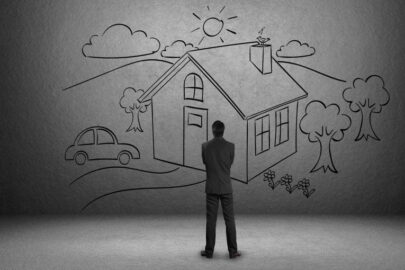45% of those who don’t yet own a home think they never will, according to the new Modern Life Report by Fidelity International.
While 65% of those under 34 are more optimistic about their chances of owning a home in the future, that drops significantly when people are between the ages of 35 and 54 when only 23% of people feel the same way.
The biggest reason cited for not feeling prepared to buy a property is the financial implications of doing so, with 40% saying they don’t feel financially prepared to buy a property in the future.
The increasing cost of buying a home means that 54% of 33-54-year olds have never owned a property, and the average age of a first-time buyer has risen from 31 to 33 over the past decade.
The rise of the 34% of adults aged 18-34 who live with their parents is one outcome of rising prices. Another is the number of people continuing to rent, with 41% of those aged 34-54 and 24% of over 55s doing so.
Tom Stevenson, investment director for personal investing at Fidelity International, said: “Home ownership is deeply engrained in the British psyche and the inability to get on the property ladder can be hard to accept. Renting can feel like throwing money away and the flexibility it offers is no substitute for the feeling of security that owning a flat or house can provide. These emotional considerations can matter quite as much as the obvious financial benefits of home ownership in recent years.
“Despite the challenge that house price rises present, home ownership remains an aspiration for 14% of 34-54 year olds. Interestingly, a tenth (10%) of over 55s share this goal, but 81% of that age group who don’t own a home think it is unlikely they ever will.
“First time buyers need substantial sums to get their foot onto the ladder, even with government initiatives like Help to Buy. And they must do so while in many cases continuing to pay high monthly rents. For those looking to take their first steps on the ladder, saving, or ideally investing, early, is key to building up the pot that will be needed to pay deposits, fees and stamp duty.
“If you are investing for more than a few years this is likely to mean an exposure to the stock market – over longer investment horizons, shares have historically outperformed safer assets like bonds and cash. Minimising any tax due by sheltering savings in tax-advantaged accounts like an ISA also makes good sense.”
